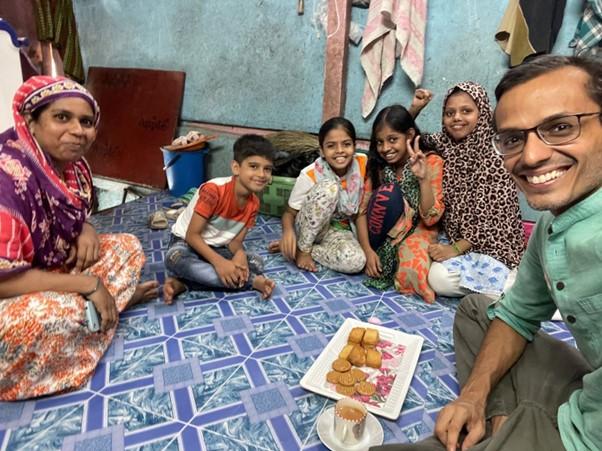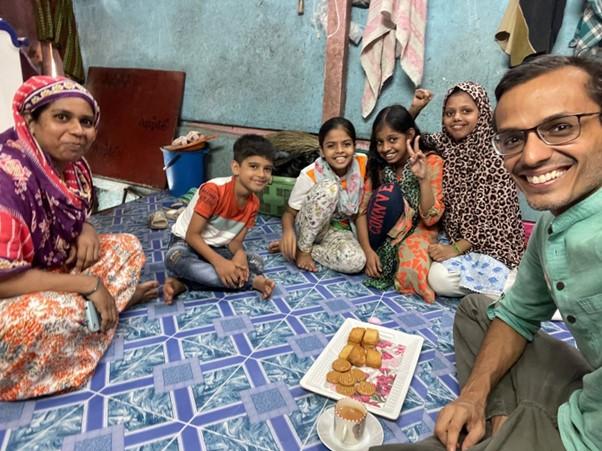
On 31st July 2023, Chetan Singh, a 33-year-old constable of the Railway Protection Force in India, opened fire killing four men on a Mumbai-bound train. Three of the four victims were Muslim men sporting markers of their Muslim identity. The fourth was his superior – an assistant sub-inspector – with whom the assailant had had an altercation. Before opening fire, Chetan Singh made reference to media propaganda that Muslims in India were being “controlled from Pakistan”, an oft-repeated charge that seeks to mark Indian Muslims as the “enemy”. He further warned that anyone who wanted to live and vote in India had only two options – “Modi or Yogi” – two prominent Hindu right-wing politicians, who hold some of the most powerful posts in the country – the Prime Minister of India, and the Chief Minister of India’s largest State, respectively. His blood curdling speech was recorded by other passengers, and the authenticity of the video footage has been confirmed. This leaves little doubt as to the motives behind the killings. At first, Chetan Singh was pronounced mentally unstable and reported to be on anti-psychotic medications, but that narrative has most recently been dismissed by the police. Nevertheless, one has to wonder – is it unusual that in a country where hatred towards Muslims is propagated through media, and calls for genocide of Muslims are made by religious leaders, a young man should take the call to action to heart? And aren’t we all a little bit mentally unstable for being subject to this kind of a narrative day in and day out? The journalist Ajaz Ashraf, quite rightly, has called it India’s “growing sickness”.
A few days later, in and around Nuh in Haryana state in Northern India, a different kind of violence played out. Following communal clashes during a Hindu religious procession, houses and shops belonging mostly to Muslims, but also to Hindus, were being demolished, leaving large swathes of people without home and livelihood. The High Court of Punjab and Haryana, took note of this and asked the state government if this was meant to be an exercise in “ethnic cleansing”. While the state government has officially denied allegations of ethnic cleansing and asserts that due process was followed, the early response of government officials suggests that the demolitions were in response to the riots. The state’s home minister for instance, had assured the public that appropriate “treatment” would be meted out to rioters involved in the communal clashes in Nuh – and part of that “treatment” would be the “bulldozer”. It appears that well before any investigation had taken place, the state had already declared who the guilty parties were, and doled out punishment to them. In addition to this, a mass exodus of Muslims, began to take place, reportedly due to threats of violence and resulting fear (see here, here and here). A “mahapanchayat” (gathering of leaders) was held in the urbane commercial hub of Gurgaon, even as prohibitory orders were in place, calling for the social and economic boycott of Muslims. 50 village councils issued letters pronouncing bans on Muslim traders entering their villages, furthering the atmosphere of hate.
What impact do these incidents have on those towards whom violence is perpetrated? There is the obvious direct impact in terms of loss of life and limb. But hate has a way of creeping into all aspects of life. A recent report on communalism and mental health chronicled the experience of Muslims in five states of India, who reported witnessing violence in some form or the other. They reported a range of feelings – shock, grief, betrayal, hopelessness, sleeplessness, uncertainty about the future. Another report on the mental health impact of ghettoization describes among other things, the “suffocation” felt by women, whose freedom and mobility is curtailed. A exploration of discrimination against Muslims at the work place, found that Muslims reported feeling anger, humiliation, dejection, as well as physical illness, as reactions to workplace discrimination. Some reported taking days off to avoid triggering conversations, or even quitting their jobs. At a much larger scale, a recent population-level study using data from the World Health Organisation’s Survey of Global Ageing and Adult Health (WHO-SAGE), examined this correlation and found that Muslims have about 1.7 times the proportional odds of reporting depression, and 1.9 times the proportional odds of reporting anxiety, when compared to higher caste Hindus. But even apart from the impact on any one community, one should be concerned about what the break down of social harmony means for a nation’s health. Social cohesion is important to ensure a sense of good health, and trust in the state is necessary for the success of health programs (as we have learnt once again so recently during the COVID pandemic).
But as India marked the 76th anniversary of its independence from British rule on 15th August, it also carries a great legacy of being a diverse nation, a vibrant melting pot of religions and cultures, which has given birth to many syncretic ways of being. In the past year, in its role as G20 secretariat, India has adopted the mantra of “One Earth, One Family, One Future” and championed itself as a preserver of traditional Indian values of holistic development. But there is another legacy – the Buddhist value of Maitri – that it must urgently recall now as well. Maitri literally means “friendship” in Sanskrit, but Ambedkar interpreted it to mean “fellow feeling to all beings, not only to one who is a friend, but also to one who is a foe; not only to man, but to all living beings.” This ideal forms the basis of one of the core values of India’s constitution – that of Fraternity. In practice it is exemplified by various examples of collective resistance to the violence that have unfolded over the past several weeks – the farmer’s groups who visited a Mosque to reassure Muslims of their solidarity, a mahapanchayat that passed several resolutions calling for peace and harmony between religious groups, a nationwide campaign launched by citizens – mere ghar aake to dekho (visit my home, be my guest)– urging people from diverse communities to invite each other to their homes and lives.
Even as the incidents of violence loom large in our imagination today, these efforts must be amplified and as a community invested in Public Health, we must find more creative ways of building bridges.

Picture Credit: Mere Ghar Aake To Dekho campaign